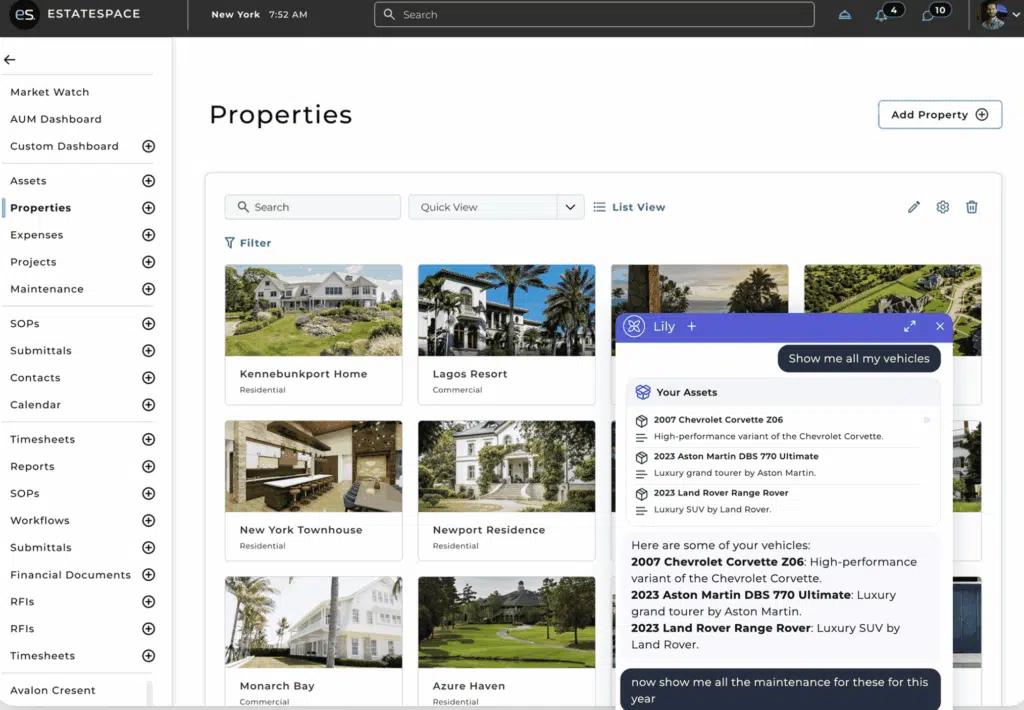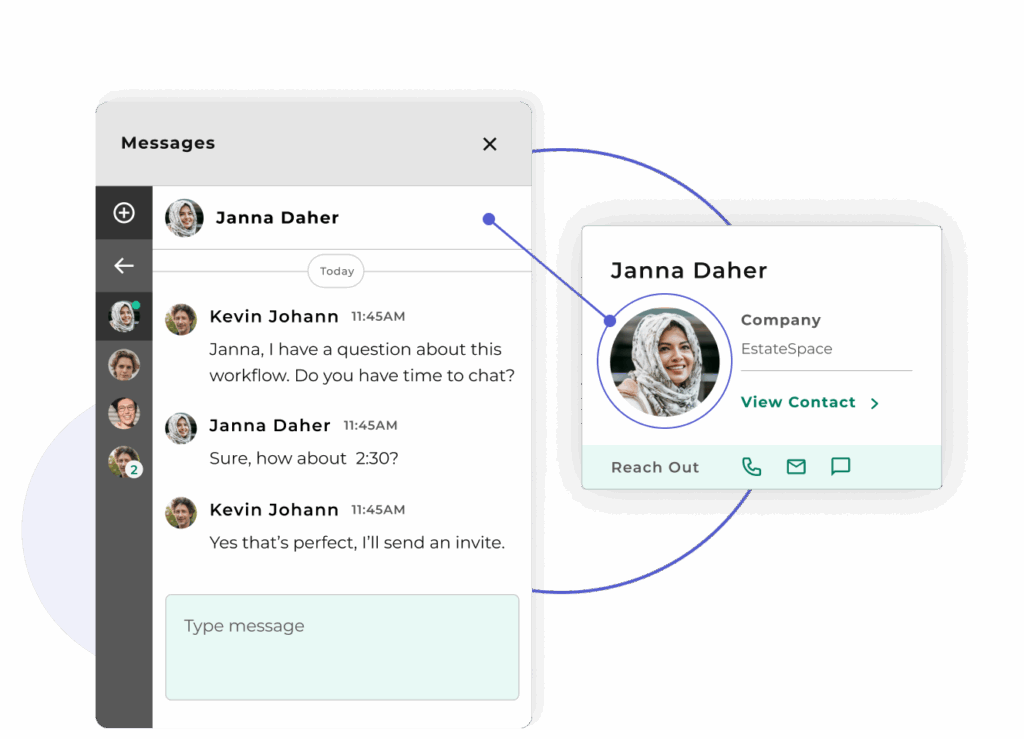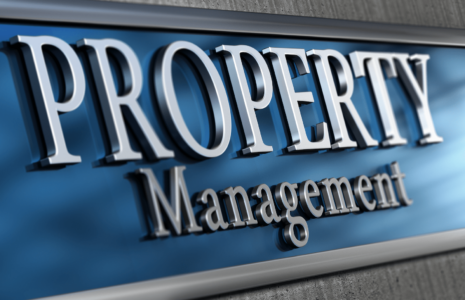In the world of property management, one size does not fit all. Different properties come with varying challenges, requirements, and details that demand tailored approaches. For property and estate managers overseeing diverse portfolios, this complexity can prove overwhelming. However, understanding and implementing comprehensive private property management strategies can transform operational efficiency while delivering exceptional service to discerning clients.
Understanding Property Diversity in Modern Estate Management
The Complexity of Multi-Property Portfolios
Different properties, whether residential estates, vacation homes, or investment properties, each come with their unique set of challenges. From maintenance schedules to staff coordination, every property has distinct needs that cannot be met with generic approaches.
Modern private property management must address:
- Varying maintenance requirements across different property types
- Seasonal usage patterns for vacation and secondary homes
- Different staff management needs based on property size and complexity
- Unique security and access control requirements
- Diverse regulatory compliance obligations
Therefore, successful property managers conduct thorough assessments of each property type in their portfolio. Consequently, understanding the specific requirements and challenges of each property becomes essential for delivering superior service.
Asset Management Across Property Types
Assets, especially in affluent families, can range from luxury vehicles to priceless art pieces. Effective private property management offers comprehensive views of all assets, ensuring they are properly managed, tracked, and maintained across multiple locations.
Research shows that 80% of high-net-worth families own assets that need specialized care and management. Subsequently, the right technology platform makes this process streamlined and efficient.
The Growing Demand for Sophisticated Property Management
Market Trends Supporting Private Property Services
The luxury property sector continues expanding rapidly, with market research indicating strong growth in demand for sophisticated management services. According to comprehensive analysis from Verified Market Reports on the luxury rental market, “A crucial component driving this growth is the luxury property management industry, which provides essential services such as property maintenance, concierge, and 24/7 support, ensuring tenants experience the highest levels of comfort and convenience.” Luxury Rental Market Size, Consumer Behavior & Forecast 2033 This trend directly supports the increasing demand for advanced private property management services.
Furthermore, the report notes that the global luxury rental market is projected to reach $186.29 billion by 2033. As a result, this reflects the expanding opportunities for specialized property management services.
Core Components of Effective Private Property Management
Integrated Staff and Vendor Coordination
Managing teams across multiple properties can be challenging, especially when coordinating between different locations and time zones. However, modern private property management streamlines staff scheduling, task allocation, and vendor coordination, ensuring smooth operations.
Key Features Include:
- Centralized scheduling systems that prevent conflicts across properties
- Automated task assignment based on staff expertise and availability
- Vendor performance tracking and coordination tools
- Real-time communication systems between all team members
Additionally, regular review of staff performance metrics and feedback within your management platform helps make informed decisions. As a result, this optimizes team productivity across all properties.
Proactive Maintenance Management
Waiting for equipment to fail is not an option in high-end property management. Instead, advanced private property management helps schedule regular inspections, ensuring that properties and assets remain in excellent condition.
Proactive Maintenance Benefits:
- Reduces long-term repair costs by up to 40%
- Prevents emergency situations that disrupt client experiences
- Maintains asset values through proper care and attention
- Ensures compliance with warranty requirements
Furthermore, setting automated reminders for periodic maintenance checks proves more cost-effective than reactive repairs. Therefore, this approach protects both property values and client satisfaction.
Technology-Enabled Private Property Management
AI-Powered Operational Intelligence
EstateSpace uses artificial intelligence to enhance private property management through predictive analytics and automated coordination. In addition, the platform provides:
Predictive Maintenance Scheduling: AI analysis of equipment performance data across multiple properties to predict maintenance needs before issues arise. Consequently, this enables proactive intervention rather than reactive responses.
Resource Optimization: Automated scheduling that optimizes staff deployment and vendor coordination across entire property portfolios. Moreover, this reduces operational costs while improving service quality.
Performance Analytics: Real-time tracking of key performance indicators across all properties and asset types. Thus, managers can identify trends and make data-driven improvements.
Customization for Individual Client Needs
Every affluent family has unique requirements. Private property management services that offer tailored approaches ensure that specific needs are met with precision. Whether custom reporting or personalized asset tracking, catering to individual preferences becomes crucial for client satisfaction.
Customization Options Include:
- Personalized reporting formats and frequencies
- Custom maintenance schedules based on usage patterns
- Tailored communication preferences for different family members
- Specialized tracking for unique assets or collections
Moreover, this level of customization sets premium services apart from standard property management offerings. Similarly, it demonstrates a commitment to understanding each client’s specific lifestyle and operational needs.

Specialized Management for Different Property Types
Residential Estate Management
Primary residences require comprehensive private property management that addresses daily operational needs:
Daily Operations: Household staff coordination, security management, and routine maintenance scheduling across all systems and amenities. Additionally, this includes coordinating with service providers and managing household budgets.
Guest Management: Coordinated preparation for family gatherings, events, and extended stays by visitors or family members. Furthermore, this involves ensuring all amenities are properly functioning and staff are prepared.
Technology Integration: Smart home systems, security networks, and communication platforms that enhance daily living experiences. Subsequently, these systems require ongoing maintenance and updates to remain effective.
Vacation Home Coordination
Secondary properties present unique challenges that require specialized approaches:
Seasonal Preparation: Opening and closing procedures that ensure properties are ready for occupancy. Additionally, this includes proper security during vacant periods and seasonal maintenance tasks.
Remote Monitoring: Continuous oversight of vacant properties including security, environmental controls, and emergency response coordination. Moreover, this involves regular inspections and maintenance even when properties are unoccupied.
Guest Services: Coordinated services for family members and approved guests including pre-arrival preparation. Furthermore, this includes ongoing support during stays and post-visit maintenance.
Investment Property Oversight
Commercial or rental properties require distinct private property management approaches:
Tenant Relations: Professional management of lease agreements, maintenance requests, and communication with tenants or property users. Additionally, this includes handling renewals and ensuring compliance with local regulations.
Financial Tracking: Comprehensive monitoring of income, expenses, and performance metrics across investment property portfolios. Consequently, this enables informed decision-making about property improvements and rental strategies.
Compliance Management: Ensuring adherence to local regulations, safety requirements, and legal obligations for commercial properties. Therefore, this reduces liability risks and maintains property values.
Building Trust Through Transparency
Comprehensive Documentation and Reporting
Affluent families value transparency in all aspects of property management. Research indicates that over 90% of high-net-worth families state that transparency in private property management operations is a top priority.
Transparency Features:
- Complete transaction logging and financial tracking
- Detailed maintenance task documentation with photo evidence
- Staff interaction records and performance metrics
- Real-time access to property status and ongoing activities
Moreover, regularly sharing detailed reports with property owners keeps them informed. Consequently, this fosters lasting, trustworthy relationships built on open communication.
Communication and Coordination Systems
Effective private property management includes robust communication systems that ensure all stakeholders remain informed:
Multi-Channel Communication: Email, text, and mobile app notifications that accommodate different communication preferences and urgency levels. Additionally, this ensures important information reaches the right people quickly.
Family Portal Access: Secure online portals where family members can access property information, submit requests, and review reports at their convenience. Furthermore, these portals provide 24/7 access to critical property data.
Emergency Communication: Established protocols for urgent situations that ensure immediate notification. Therefore, this enables rapid response coordination when needed most.

Integration with Estate Management Systems
Comprehensive Asset Tracking
Modern private property management integrates seamlessly with broader estate management systems to provide complete oversight:
Physical Asset Management: Tracking and maintenance of vehicles, artwork, jewelry, and other valuable possessions across multiple properties. Additionally, this includes coordinating specialized care and insurance requirements.
Digital Asset Coordination: Integration with financial management systems to provide complete portfolio oversight and reporting. Moreover, this enables holistic wealth management approaches.
Insurance Coordination: Alignment with insurance policies and coverage requirements to ensure adequate protection across all properties and assets. Subsequently, this reduces gaps in coverage and potential liability issues.
Financial Management Integration
Advanced platforms connect property management activities with financial planning and reporting:
Budget Management: Real-time tracking of expenses against budgets with automated alerts for variance management. For comprehensive guidance on developing effective budget strategies across diverse property portfolios, our detailed resource on Property Management Budgeting: Strategic Approaches provides essential frameworks for optimizing financial performance.
Cost Optimization: Analysis of spending patterns across properties to identify opportunities for efficiency improvements. Furthermore, this analysis helps prioritize capital improvements and operational changes.
Tax Documentation: Comprehensive record-keeping that supports tax preparation and financial planning requirements. Therefore, this ensures compliance while maximizing available deductions and benefits.
Measuring Success in Private Property Management
Key Performance Indicators
Successful private property management tracks specific metrics that demonstrate value and effectiveness:
- Property condition scores and maintenance completion rates
- Client satisfaction measurements and feedback analysis
- Cost efficiency metrics and budget variance tracking
- Staff performance indicators and training completion rates
- Emergency response times and resolution effectiveness
Additionally, regular assessment of these metrics enables continuous improvement. Furthermore, this demonstrates ongoing value to property owners and their families.
Continuous Improvement Processes
The most effective private property management services incorporate ongoing refinement:
Regular Property Reviews: Quarterly assessments of property conditions, maintenance needs, and operational efficiency across all locations. Moreover, these reviews identify opportunities for preventive maintenance and system upgrades.
Staff Development: Ongoing training programs that enhance skills and ensure consistent service delivery standards. Additionally, these programs keep staff current with new technologies and best practices.
Technology Updates: Regular system improvements and feature enhancements that maintain cutting-edge operational capabilities. Consequently, this ensures clients benefit from the latest innovations in property management technology.
Building Long-Term Client Relationships
Personalized Service Delivery
Outstanding private property management goes beyond basic maintenance and coordination. Instead, it focuses on understanding each family’s unique lifestyle and preferences:
Lifestyle Integration: Services that adapt to family routines, seasonal patterns, and special requirements for different properties. Additionally, this includes anticipating needs based on historical usage patterns.
Anticipatory Service: Proactive identification of needs and opportunities to enhance property experiences before clients request them. Furthermore, this demonstrates attention to detail and commitment to exceptional service.
Relationship Building: Long-term partnerships built on trust, reliability, and consistent delivery of exceptional service quality. Therefore, these relationships often span multiple generations within families.
The Future of Private Property Management
Modern private property management requires sophisticated integration of technology, human expertise, and customized approaches that address the unique needs of diverse property portfolios. Property managers who embrace comprehensive platforms position themselves to deliver superior service while optimizing operational efficiency.
The families and institutions that invest in advanced property management systems today will experience better outcomes, preserved asset values, and enhanced quality of life across all their properties. As property portfolios become more complex and client expectations continue rising, tailored solutions become increasingly essential for long-term success.
By leveraging platforms like EstateSpace and building skilled teams trained in diverse property management approaches, estate managers can create exceptional experiences. Consequently, this exceeds client expectations while maintaining operational excellence across entire portfolios.
Ready to transform your private property management approach? Discover how EstateSpace’s comprehensive platform can help you manage diverse property portfolios with precision and efficiency. Schedule a consultation to explore tailored solutions for your specific management needs.
Learn more about specialized approaches for family offices, asset managers, and project managers managing complex estate portfolios.



